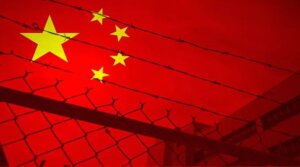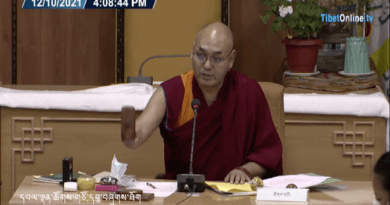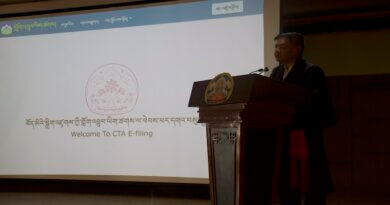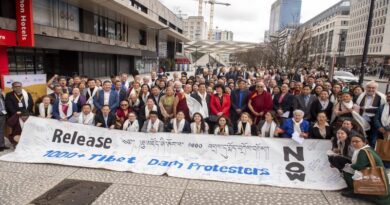China’a miscalculation will prove costly
N.S.Venkataraman.

Signals from China indicate that the Chinese government has evolved a strategy and action plan, to be partly implemented in the medium term and the rest to be implemented in long term and emerge as the most dominant country in the world. Obviously, it aims to emerge as a single superpower in the world, effectively dislodging the USA from the present superpower status and significantly reducing the influence of Russia and the European Union in the world.
One cannot but miss the fact that China’s methodology for implementing its strategies has two approaches.
One approach is to economically bring several underdeveloped and developing countries under its heels.
The additional approach is to use its military force to invade the territories in the nearby regions to expand its territorial base
Territorial expansion plans under execution :
China occupied Tibet using its military force several decades back and China’s aggression was not challenged effectively by any country. This Tibet aggression gave confidence to China that there would not be any strong opposition to China’s aggressive military acts, so long as China would remain economically strong with a strong industrial and agricultural base.
When the United Kingdom meekly gave away Hong Kong to China, much against the wishes of the Hong Kong citizens, China’s confidence about achieving its territorial ambition increased multifold.
After the 1962 war with India, China is occupying thousands of kilometres of Indian territory and also is claiming the Arunachal Pradesh province in India as its own. The fact that India is not talking anymore about recovering the thousands of kilometres of Indian territory occupied by China, has emboldened China more in implementing its territorial adventures.
Apart from China’s claim to Senkaku islands and the South China Sea where China has already established a military base without being challenged, China’s immediate target is to occupy Taiwan.
China is now ramping up its military, diplomatic and economic coercion of Taiwan. The Chinese military has staged air and sea exercises in the Taiwan Strait, without being challenged. China entering and occupying Taiwan may soon happen and in all likelihood, the USA and West European countries may react to the situation only verbally and not want to risk war with China. This is what China expects to happen.
Economic domination plans of weak countries under execution :
Since the launch of the Belt and Road Initiative ( BRI ) in 2013, China’s total engagement in different countries is around $ 932 billion in construction contracts and the rest in other investments.
This year, China has signed BRI documents with 149 countries with an investment volume of over 1 trillion Yuan ( $ 147 billion), flagging the China –Laos railway, bridge in Serbia and Gwadar port as landmark projects that had been well implemented.
In the first half of 2022, China’s engagement through financial investments and contracts in 147 countries amounted to $ 28.3 billion, up by 47% from the previous year. Of this, $ 11.8 billion was through investments and $16.5 billion through project contracts.
China’s short and medium-term assistance to countries, that are underdeveloped with weak economies and some of which are reeling from rising debt levels, is increasing.
The aim of BRI is clearly to bring down a large number of underdeveloped countries in China’s economic control and these countries together are located in a major part of world territory. The clear trends of BRI are to ensure a growing role for Chinese state-owned enterprises and control the industrial and economic base of these countries, which are made to become debt-ridden to China.
In the past five years, China gave nearly $26 billion in short and medium-term loans to Pakistan and Sri Lanka. With Economic Corridor Project and with a huge debt to China, Pakistan is now clearly under China’s control. In the same way, by handing over the Hambantota port to China on a 99-year lease by debt-ridden Sri Lanka, China is now firmly present in Sri Lanka and the ongoing visit of China’s dual-purpose research or spy ship Yuan Wang 5 docking at Hambantota Port indicates that China would assert itself in dealing with the debt-ridden countries like Sri Lanka, despite Sri Lanka’s initial reluctance to permit it.
China’s miscalculation :
China seems to be under the impression that by economic domination and making the weak countries debt-ridden to China and ensuring that China will have a firm and inevitable place in the economic and industrial sphere of a large number of underdeveloped or developing countries, China would emerge as an economic superpower, with no other country matching it.
Further, by occupying the territory of nearby countries and regions using military force and with other countries such as the USA and European Union unwilling to risk a large-scale war with China, China would bring the large region under its control. The ongoing Russian aggression against Ukraine and the unwillingness of the USA and NATO countries to engage in a war with Russia to defend Ukraine reassure China that its aggressive stance will not be met by an equally aggressive stance by the USA and the European Union.
The question is whether China’s strategies would work in the way that China expects.
A few centuries back, countries like Britain, Belgium, France, and Portugal brought several countries in the world under their control by initially entering the countries as traders and in course of time becoming the rulers of these countries. Such strategies worked well at that time since most of these occupied regions were poor with little literacy and education amongst the people and under the rule of local chieftains.
However, at present, such conditions in many underdeveloped countries do not exist due to the spread of communication and people becoming aware of their rights and having an intense love for freedom.
While China can economically and militarily control the targeted countries, it cannot manage the protest from the local people who would not relish dominance by another country. China is already seeing such conditions in Pakistan and a few African countries and it is said that China is now considering proposals to send its military to these countries to protect the interest of the Chinese people and Chinese investment.
Massive protests from the local people in countries, occupied by China economically or with military force, against China’s control, will force China to take several steps backwards.
Will become costly for China:
Today, China has several countries which are opposed to China or deeply suspicious of its objectives and aims of China.
China is now claiming the territories of Taiwan, and India and is already occupying Tibet. China is also challenging the claims of Japan in the Senkaku islands and that of the Philippines, Vietnam, Brunei and a few other countries in the South China Sea.
China is increasingly creating an impression around the world that it believes in force and coercion to achieve its ends and often uses crude methods unbecoming of a developed country.
The internal situation in China also has a lot of issues such as human rights violations by China against the Uyghur community where several thousands of Uyghurs are said to be under detention. In Hong Kong, China is controlling the region by using force against the protesters, The Tiananmen Square massacre is an indication of the state of things in China due to the totalitarian regime.
As the world is realising that China’s words and actions are deeply destabilising, there is bound to emerge a scenario where protests by people in different countries that are seeking to be occupied by China, would become too hot for China to handle.
With a totalitarian Chinese government in power in China and with people’s protests in a few countries opposing China’s domination and its military stretched out in defending territories occupied by China, China will likely pay a big price for its miscalculation in the coming years. Certainly, China will not have the last laugh.
Venkataraman is a trustee with the “Nandini Voice for the Deprived,” a not-for-profit organisation that aims to highlight the problems of downtrodden and deprived people and supports their cause. To promote probity and ethical values in private and public life and to deliberate on socio-economic issues dispassionately and objectively.
The views expressed in this article are that of the author’s and should not be attributed to Tibet Express.






